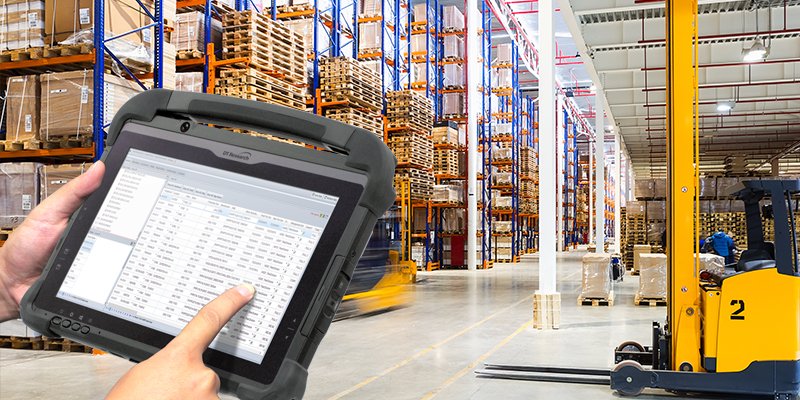
The logistics industry plays a pivotal role in today’s fast-paced global economy. As technological advancements continue to reshape this sector, staying ahead of the curve is imperative to remain competitive. One crucial aspect that requires constant attention is ensuring safety while adapting to the evolving needs of a flexible workplace. Rugged tablets are emerging as a game-changer in this regard, advancing safety standards and flexibility in logistics.
Let’s explore how these technological advancements are helping the logistics industry become future-ready and provide a safe, flexible work environment.
High Safety Standards
Safety is paramount in the logistics industry. Ensuring the safety of employees is not just a legal obligation; it’s essential for the efficient operation of logistics businesses. A secure workplace protects the employees, the goods being transported, the company’s reputation, and ultimately, the bottom line.
1. Long-Range Barcode & RFID Scanning: Rugged tablets equipped with long-range barcode and RFID scanning capabilities are revolutionizing safety in logistics. They enable workers to scan stacked crates and perform batch scanning for shipments as they arrive and leave the loading docks. This technology not only speeds up operations, but also ensures accurate tracking and minimizes the risk of errors.
2. Scheduled Vehicle Maintenance: Drivers in the logistics industry rely heavily on their vehicles and forklifts. To ensure their safety and the safety of others on the road and in the warehouse, employers must perform routine maintenance. Rugged tablets can help track and schedule these maintenance tasks efficiently, reducing the likelihood of accidents due to vehicle malfunctions.
3. Training on Safe Equipment Operation: Warehouse workers often operate heavy machinery like forklifts and pallet jacks. Providing them with access to rugged tablets for training on the safe operation of such equipment is invaluable. These tablets can host interactive training modules, making it easier for employees to grasp safety protocols and practices.
More Flexibility
The logistics industry faces the constant challenge of balancing ongoing demands for automation, digitization, and compliance. Rugged tablets are proving to be a crucial tool in addressing this challenge by offering greater flexibility.
1. Embracing Digital Work Approaches: Modern logistics workers increasingly expect digital and flexible work approaches. Rugged tablets can seamlessly integrate into these workflows, allowing for real-time communication and data access. This, in turn, enhances efficiency and responsiveness.
2. Streamlining Logistics Processes: With the advancement of communication and IT technologies, many logistics processes are now performed with the same rugged tablet. From order processing to customer service, these tablets enable workers to handle various tasks efficiently. Tracking inventory status, monitoring vehicles, managing shipments, and scheduling become more accessible and accurate.
3. Meeting Future Workplace Expectations: The future of work in the logistics industry is all about flexibility. Rugged tablets play a vital role in meeting the rising expectations of modern logistics workers for a more adaptable work environment. By providing the tools and technology needed for flexible work, employers can attract and retain top talent in the industry.
In the logistics industry, the safety of employees and the flexibility to adapt to changing demands are paramount. Rugged tablets are at the forefront of technological advancements, advancing safety standards, and enhancing flexibility. Employers who invest in these mobile computers not only protect their employees, but also safeguard the goods they transport, maintain their reputation, and ultimately bolster their bottom line. As the logistics industry continues to evolve, rugged tablets are the key to staying future-ready in the ever-changing workplace landscape.

